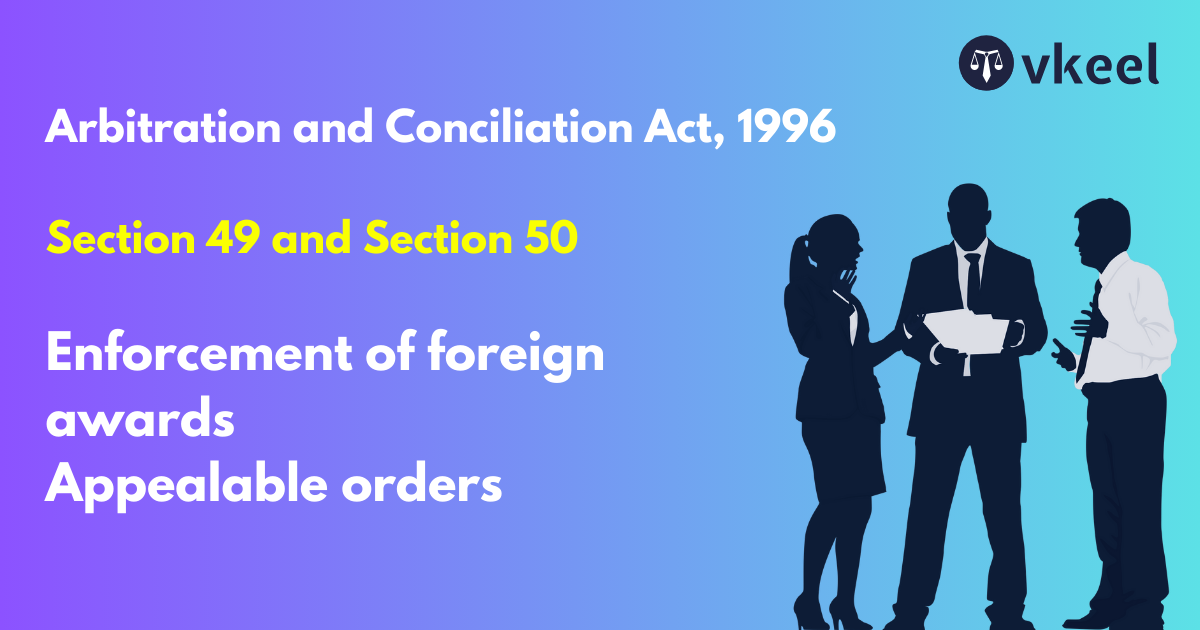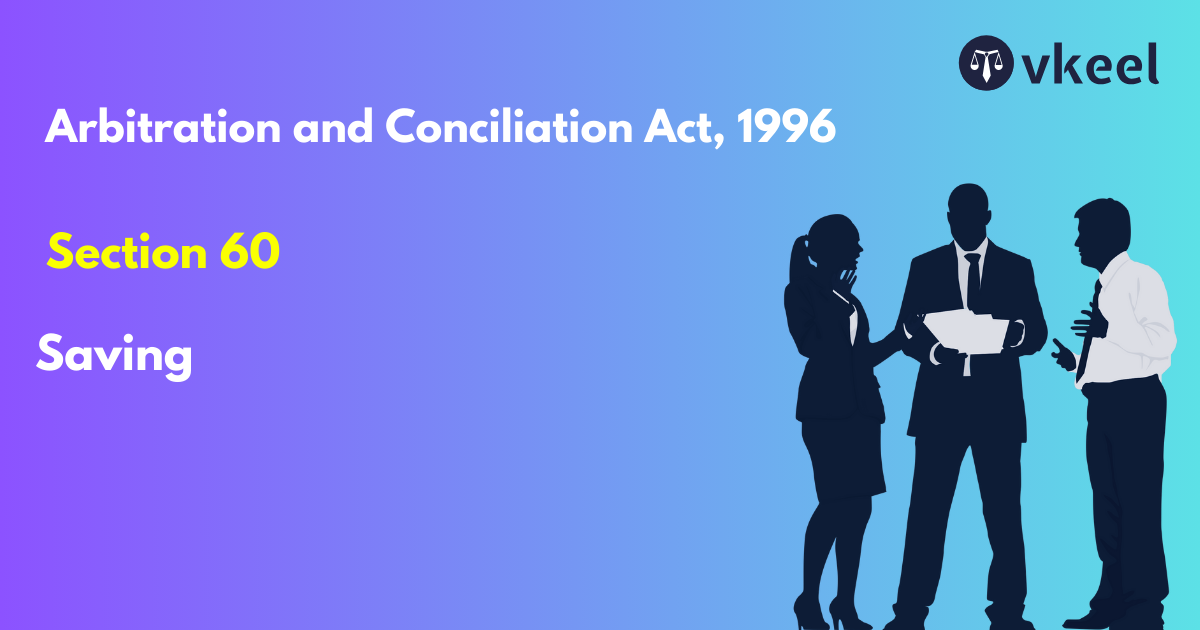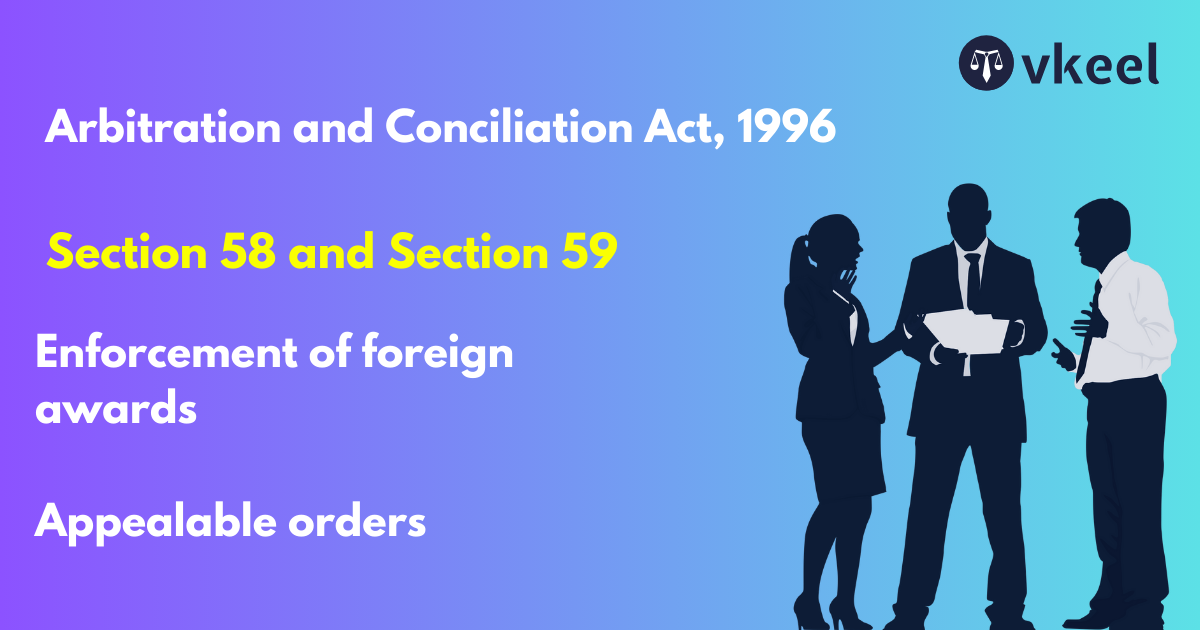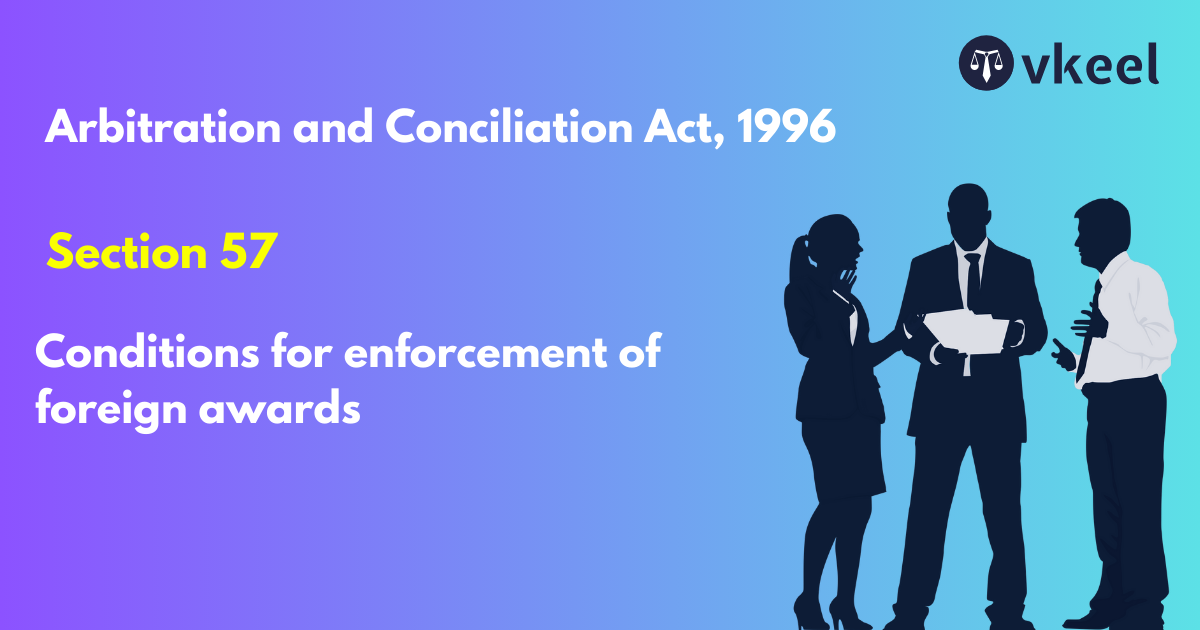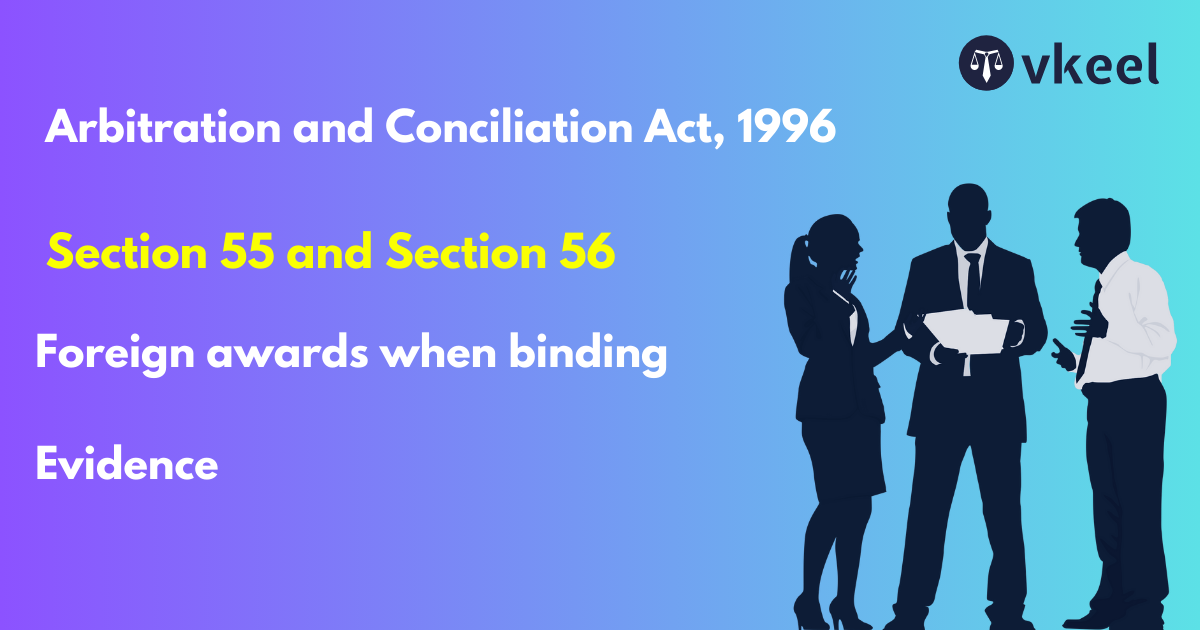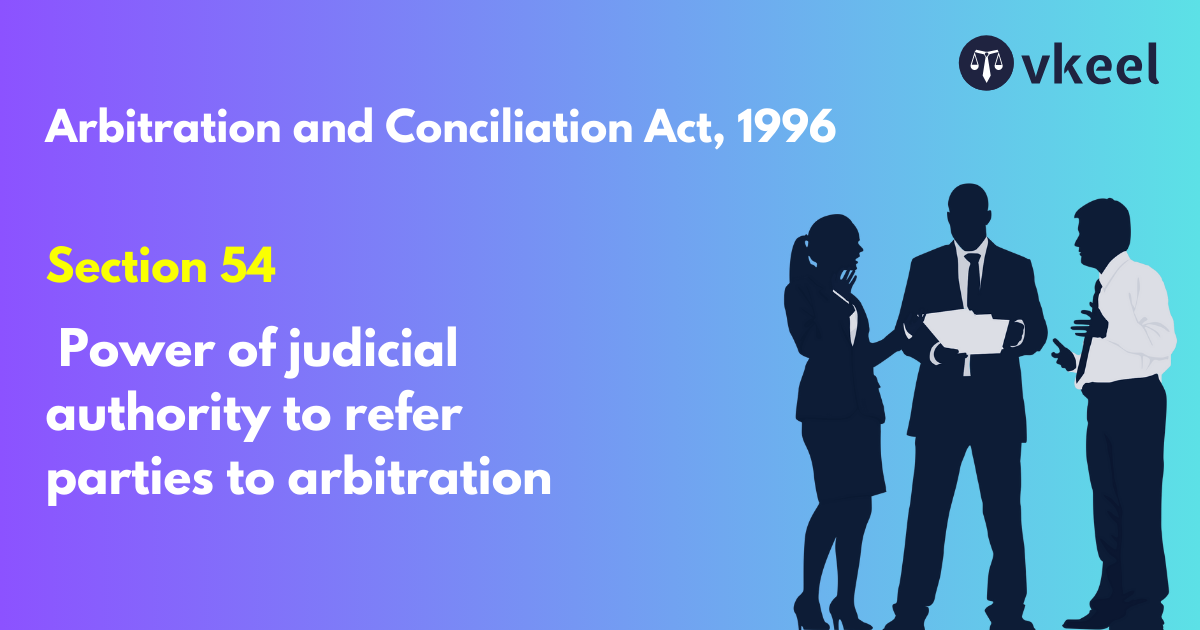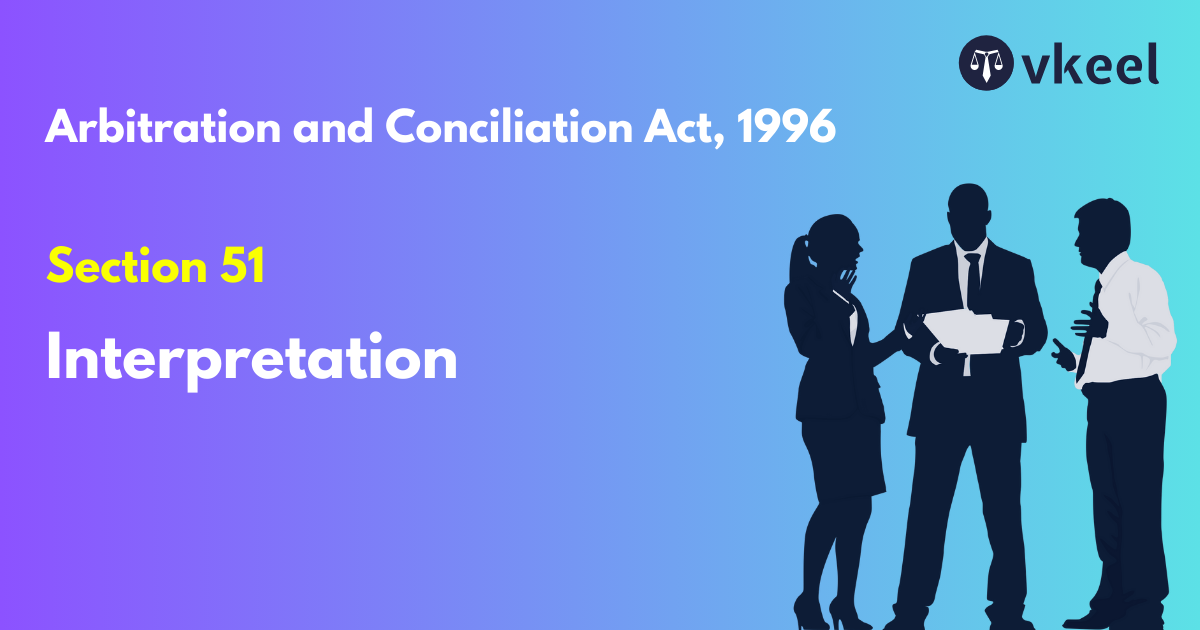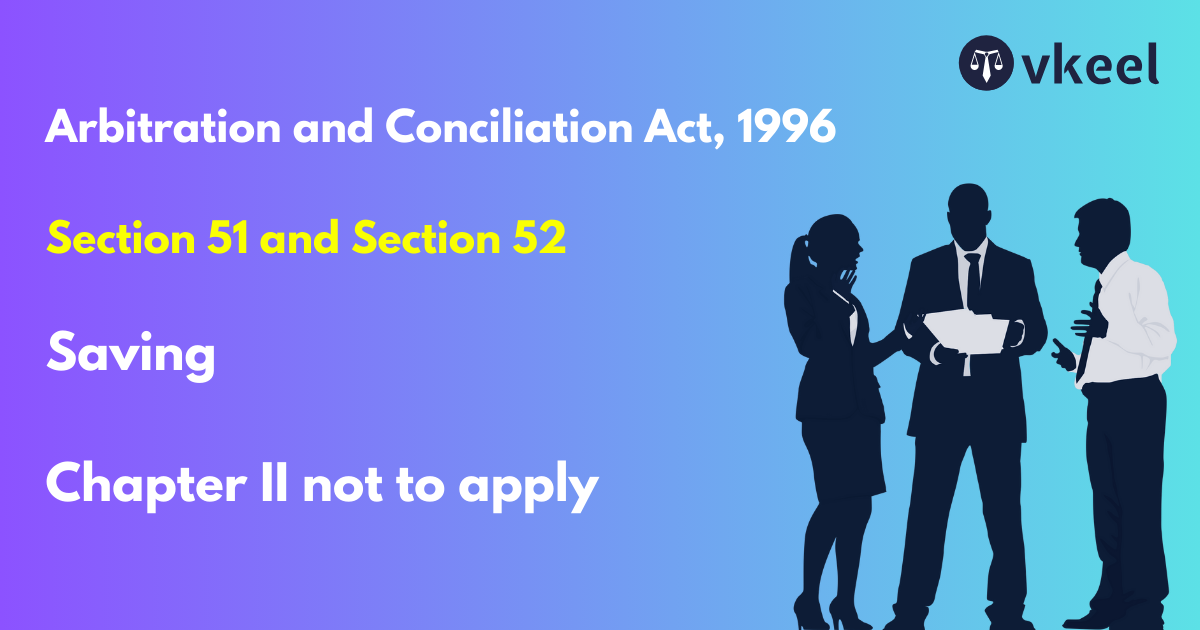Section 49 and Section 50 of Arbitration and Conciliation Act, 1996
By Nivedita Dhiman
Table of Contents
Introduction
Section 49 of the arbitration and conciliation act states that where the court is satisfied that the foreign award is enforceable under this chapter the award is deemed to be a decree of that court. The only difference therefore, appears to be that while under the foreign awards Act a decree follows, under the new act foreign award is already stamped as a decree. Section 49 of the act empowers the court to declare that the foreign award is enforceable under the provisions of the act.
Section 50 of the arbitration and conciliation act bars all appeals under the statute; it limits the operations of the letters patent as applicable to the Delhi High Court. As per this section, there is no scope for filing second appeal. This section is a provision contained in a self-contained code on matters pertaining to arbitration, and exhaustive in nature.
Section 49 and 50 of arbitration and conciliation act
Enforcement of foreign awards
Where the Court is satisfied that the foreign award is enforceable under this Chapter, the award shall be deemed to be a decree of that Court.
Appealable orders
(1) [Notwithstanding anything contained in any other law for the time
being in force, an appeal] shall lie from the order refusing to—
(a) refer the parties to arbitration under section 45;
(b) enforce a foreign award under section 48,
to the court authorised by law to hear appeals from such order.
(2) No second appeal shall lie from an order passed in appeal under this section, but nothing in this
section shall affect or take away any right to appeal to the Supreme Court.
Landmark Judgements
section 49
Furest Day Lawson Ltd vs Jindal Exports Ltd, 2012
The award is deemed to be a decree of the court that is seized of the enforcement proceedings only “where is court is satisfied that the foreign award is enforceable under this chapter”. In other words, till such time the objections filed by the judgement debtor to the enforcement of an award are not disposed of, the foreign award does not become enforceable as such.
Bhoomatha Para Boiled Rice and Oil Mill vs Maheshwari Trading Co, 2010
An application for enforcement of a foreign award, either under section 49 or 58 of the 1996 Act, can be made before the district court as well as the additional district judge if the matter is assigned to such a court.
Section 50
Shin-Etsu Chemical Co Ltd vs Vindhya Telelinks Ltd, 2009
As per this section, there is no scope for filing second appeal. What is exempted is “any right to appeal to the supreme court “. This does not include appeal by way of special leave petition under article 136 of the constitution. An appeal by special leave to the supreme court cannot be considered as right of appeal vested in the party.
Sumitomo Corp vs CDC Financial Services Ltd, 2008
Exclusion of time during which the matter was wrongly pursued by the applicant bona fide in a court having no jurisdiction in the matter is now permitted. Where the appeal filed under section 50(1)(a) was wrongly pursued in the high court which lacked territorial jurisdiction, it was held that the time taken in the high court as well as the supreme court must be allowed to be excluded for limitation.
Conclusion
The above mentioned section 49 was passed to give effect to the convention on the recognition and enforcement of foreign arbitrator’s award. The award must be executed as it is and there is no scope for any addition to any award in executing a foreign award.
Section 50 stipulates that an appeal shall lie against an order refusing to refer the parties to arbitration. As per this section, there is no scope for filing second appeal.
Disclaimer:
The information provided in the article is for general informational purposes only, and is not intended to constitute legal advice or to be relied upon as a substitute for legal advice. Furthermore, any information contained in the article is not guaranteed to be current, complete or accurate. If you require legal advice or representation, you should contact an attorney or law firm directly. We are not responsible for any damages resulting from any reliance on the content of this website.

